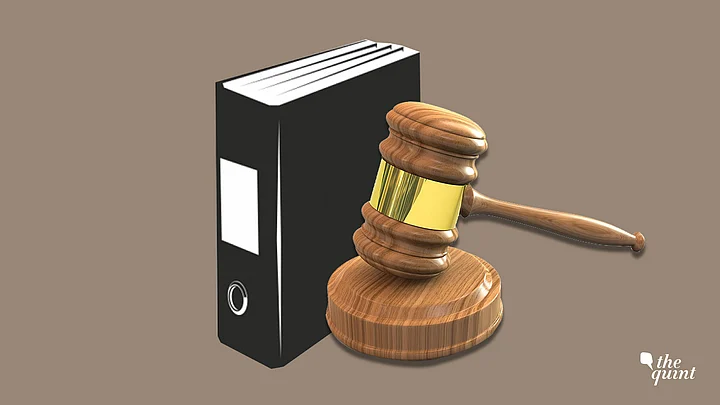A series of RTI queries seeking to lift the veil of secrecy off the Srikrishna Committee tasked with drafting India’s data protection bill has met with repeated denials of information.
Five separate RTI queries between December 2017 and June 2018 have managed to squeeze out limited information about the working of the Justice Srikrishna Committee that the Centre had formed on 31 July 2017. Apart from questions regarding its transparency, the ten-member committee has also been questioned regarding its composition and inclusiveness.
Through responses to the RTI queries we now know that the committee has met a total of seven times between 8 September 2017 and 15 May 2018. However, requests for further information on these meetings have been repeatedly denied and only partially revealed after follow-up RTIs and an appeal before an appellate authority.
“What is so secretive about the working of the Srikrishna Committee on data protection?” asked activist Anjali Bhardwaj, who had filed the requests.
“We believe that the right to privacy is of utmost importance and the data protection law will have serious ramifications for the country. This is why we are asking for information that should anyway be in the public domain,” said Bhardwaj.
The Ministry of Electronics and Information Technology (MeitY), under which the committee functions, has denied information about the following questions:
- Minutes of all the meetings held after the second meeting on 3 October 2017.
- Agenda of meetings held after the second meeting.
- Documents provided to the committee for each meeting subsequent to the second meeting.
- Presentations made by committee members Arghya Sengupta and Gulshan Rai during the first two meetings.
- Copy of the draft bill provided to the committee by MeitY.
- Copy of all comments/submissions received in response to the White Paper.
- Records containing views of the committee on submissions received in response to the White Paper.
A chronological reading of the RTI requests reveal the struggle to seek accountability from a Committee set up by the central government.
31 July 2017: The Srikrishna Committee is set up to “identify key data protection issues” and suggest “a draft data protection bill”.
2 December: Anjali Bhardwaj files first RTI asking for 1) Date of each meeting; 2) Copy of agenda (including all annexures) for each meeting including all records, material etc circulated; 3) Copy of all documents/records provided to the Committee for each meeting; 4) Copy of minutes of the proceedings of each meeting; 5) Names and designation of persons who attended each meeting.
20 December: Response reveals the Committee had met three times till then but refuses to submit agenda, documents and the minutes of the meetings.
27 December: Bhardwaj files the first appeal requesting the first appellate authority to direct the Public Information Officer to furnish details of the unanswered RTI queries.
2 February 2018: Following the first appeal, the Ministry of Electronics and Information Technology (MeitY) furnishes details about the three previously unanswered queries. Among the details revealed through the minutes of the first two meetings were i) Arghya Sengupta and Gulshan Rai had made presentations about right to privacy and technical aspects of privacy respectively and ii) MeitY had provided a draft data protection bill to the Committee for consideration.
17 May: Following the information received, Bharadwaj and Amrita Johri file three RTI queries seeking information on i) the presentations made by Sengupta and Rai ii) the number and contents of the submissions made to the committee by the public upon release of its white paper in November and iii) minutes and documents of the meetings held after the second meeting on 3 October.
20 June: The responses to the three separate queries once again stonewall against any substantial information.
In response to the request on presentations made, the reply said it would “not be appropriate to provide the presentations requested at this stage without taking the Committee into confidence as this may interfere with the functioning”.
Bhardwaj contests the reasoning provided in the three responses, calling them “totally illegal denials”. Information can be denied if it is exempt under the RTI Act as specified in Section 8 or 9 of the Act. However, the department has not invoked any of the legal exemptions in its reply.
In reply to the requests for copies of submissions made to the Committee in response to the white paper, the information officer’s written submission said that this information “is confidential and meant for examination of the Committee only” and hence “not available for public dissemination”.
With regards to the third request pertaining to copies of the agenda, minutes and documents related to all the subsequent meetings after its second meetings, the response said that “it may not be appropriate” to disclose such information as “it may interfere with the functioning”.
The denial of information comes in the backdrop of an RTI amendment bill introduced in Parliament, which many activists suspect is aimed at diluting the strength of the Act.
“Through its attitude towards our legitimate requests for information, what the government has clearly indicated is that it is just not interested in sharing information about anything that it finds inconvenient,” Bharadwaj said.
(At The Quint, we question everything. Play an active role in shaping our journalism by becoming a member today.)
